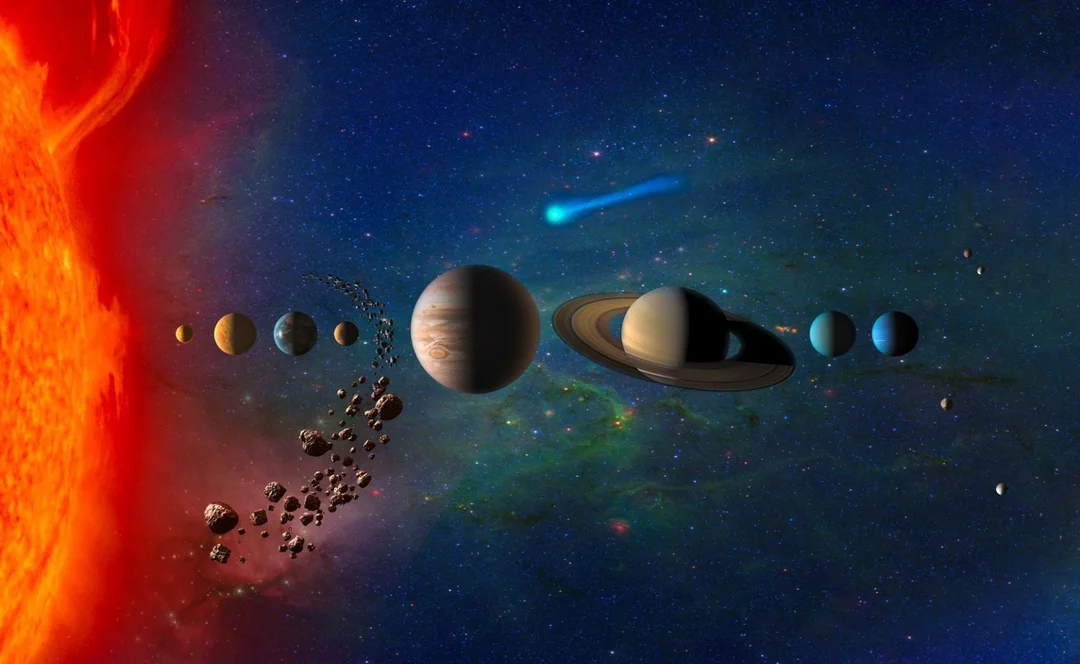
Rogue Star Threat: Could a Passing Star Hurl Earth Into Deep Space?
The future of Earth faces an unsettling possibility: a **rogue star** passing close enough to our solar system could trigger catastrophic events. While the Sun eventually swelling into a red giant poses a distant threat, a new study published in Icarus highlights the more immediate danger of stellar flybys.
Astronomers at the Planetary Science Institute and the Laboratoire d'Astrophysique de Bordeaux are warning that these passing stars, seemingly inconsequential in most cases, could destabilize planetary orbits, potentially leading to collisions or even ejecting Earth from the solar system entirely.
What makes this scenario particularly alarming? According to the research, the planet Mercury plays a key role. Its orbit, already prone to becoming more elliptical due to gravitational interactions with Jupiter, could be further destabilized by a passing star. This increasing eccentricity could then lead Mercury to collide with Venus or the Sun, triggering a chain reaction that affects the entire solar system.

The researchers conducted 2,000 simulations using NASA’s Horizons System to model the evolution of our solar system over the next 5 billion years, incorporating the impact of passing stars. The findings: stellar flybys could make the solar system approximately 50% less stable. While the chance of Earth being directly ejected is lower, instability rises significantly if another planet collides with it.
"In addition, we find that the nature of stellar-driven instabilities is more violent than internally driven ones," the researchers stated in their paper. "The loss of multiple planets in stellar-driven instabilities is common and occurs about 50% of the time, whereas it appears quite rare for internally driven instabilities."
Pluto, often thought to be safe, faces a 4% risk of ejection or collision due to these stellar shenanigans, a surprising revelation considering it navigates across Neptune's path. The delicate balance of Pluto's 3:2 resonance with Neptune is vulnerable to disruption from passing stars.

However, lead researcher Nathan Kaib urges calm. While the chance of such a catastrophic event impacting Earth is only 0.2% over the next 5 billion years, it's still a significantly higher risk than previous studies suggested.
These findings highlight the interconnectedness and fragility of our solar system. Even seemingly distant events can have profound consequences. The study emphasizes that even in cases where planetary instability isn't triggered, passing stars can impart slight nudges to the orbits of giant planets like Uranus and Jupiter, hinting at past stellar encounters that may have shaped the solar system we know today. These stellar passages are more likely to happen sooner rather than later.
The implications extend beyond our solar system. Understanding the influence of stellar flybys could inform future studies of exoplanetary systems, where these encounters could play a major role in destabilizing orbits.
While the probability of Earth being flung into the interstellar void remains low, the research underscores the dynamic and potentially chaotic nature of our cosmic neighborhood. Are we destined for a collision, or will we remain safely anchored in our orbit? What are your thoughts on these new findings? Share your opinions in the comments below!